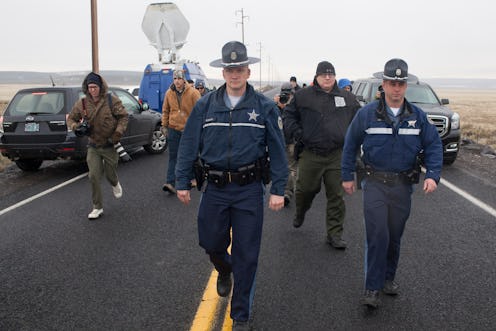News
Trump’s Immigrant Policy Impacts Domestic Violece

In El Paso, Texas last week, a woman showed up to court, seeking a protective order as a victim of domestic violence. The court granted it to her. But also in the courthouse were a team of officers from Immigrations and Customs Enforcement, who detained the woman for being in the United States illegally. According to El Paso County Attorney Jo Anne Bernal, agents may have been tipped off by the man she accused of abusing her, as reported in the El Paso Times on Wednesday.
The detention came as part of a week of raids by ICE agents, stepping up enforcement in what they call routine process, but which opponents claim is a heightened crackdown that inspires fear in immigrant communities. The crackdowns come after an executive order from President Donald Trump, which broadened the category of undocumented immigrants subject to deportation.
While many are frightened by these latest actions, for the people who fight against domestic violence, it is especially chilling and provides another hurdle for protecting victims.
"We condemn it," Michael Polenberg, Vice President of Government Affairs at Safe Horizon, a New York-based victim services organization, tells Bustle. "We are deeply concerned that this kind of enforcement action by ICE ultimately gives abusers another tool to silence."
The fear among those who deal with victims of domestic violence on a daily basis is that actions like this empower abusers to prevent their victims from seeking help, able to threaten their victims with retaliation from the law if they seek refuge from their terrible situation.
"This victim was harmed twice," says Ruth Glenn, executive director of the National Coalition Against Domestic Violence, of the El Paso woman. "Once by the perpetrator who had obviously committed domestic violence against her, and then in the place where she should feel most safe by seeking safety she was detained by ICE. It sends a really strong message to victims and survivors that there is no safe place."
"Those of us that work in this field know of many instances where survivors have not come forward due to the fear of being reported."
To critics of this latest aggressiveness, the actions by ICE seem to violate the 2013 reauthorization of the Violence Against Women Act. When the Act was last renewed, provisions were added that ensured confidentiality and protected victims who were undocumented from being detained or deported when reporting the crime. They were added to prevent a situation much like this, where a victim could be afraid to seek help because their abuser threatened to call immigration enforcement on them.
"Those of us that work in this field know of many instances where survivors have not come forward due to the fear of being reported and have an abuser maintain control over them. 'If you don't do what I ask you to do or you don't endure this abuse, I will see to it that you are deported,'" Glenn tells me.
The case in El Paso is especially concerning to some advocates because it reportedly involved a transgender woman. "If you look at LGBT survivors, they don't access services at the rate of their heterosexual counterparts," Shelby Chestnut, Director of Community Organizing and Public Advocacy at The National Coalition of Anti-Violence Projects, tells Bustle. "It further increases that it's a safety risk for them. And this is an extreme safety risk, as we see from the results."
"It'll deter people from reporting violence. It'll deter people from seeking services that can also save their life."
This incident only raises concerns from many in the violence-prevention community about the Trump administration. The appointment of Jeff Sessions as Attorney General drew fire from many who fight domestic violence due to Sessions having voted against the Violence Against Women Act reauthorization. The National Task Force to End Sexual and Domestic Violence wrote an open letter to the Senate Judiciary Committee opposing his nomination on this and other grounds.
"It's a huge concern, and not only his vote against Violence Against Women," Glenn says "When we're talking about domestic violence, and violence against women, and women being marginalized in a society, it's a civil rights issue. We believe that AG Sessions has been very clear about his views on civil rights. We don't believe he'll have the best interests of women, in the civil rights context or in the violence against women context as he works as Attorney General."
Sessions was confirmed last week, and with these immigration orders, we're seeing one of the first implementations of policy from the new administration. For those who devote their lives to protecting victims from domestic violence, the incident in El Paso has not indicated a hopeful start.
"It'll deter people from reporting violence," says Chestnut. "It'll deter people from seeking services that can also save their life. And likely people will continue to stay in abusive relationships because they feel like they have no other alternative."